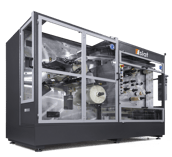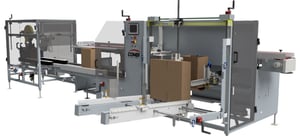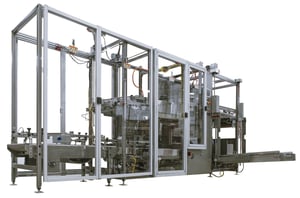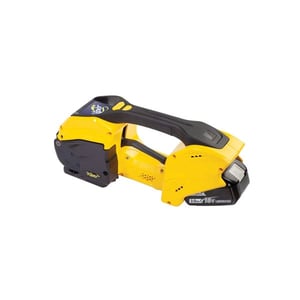When automating, updating or expanding your secondary packaging lines, one of the first decisions is whether to work with an industrial distributor to acquire the new machinery or to go directly through an original equipment packaging manufacturer.
If you already have a relationship with a distributor who understands your operation, that’s the way to go, according to Steve Ryan, Midwest senior regional sales manager at Combi Packaging Systems.
The assessment may surprise you, coming as it does from someone who sells for an OEM. Here are his reasons:
Packaging equipment expertise
Industrial distributors exist to provide day-to-day support to manufacturing, co-packing, fulfillment and logistics companies that use packaging equipment.
“I’m a one-man show,” Ryan says. “I can tell you everything there is to know about my equipment. But the distributors are like an army. They tend to have broad knowledge about the full range of equipment available. And they’re working with their customers all the time—so they have useful history and context that might be important.”
For example, they have a sense of how hard you run the equipment, the extent of your maintenance capabilities and how upstream operations connect with the end-of-line packaging line.
“They’re in with customers every day, looking for options to improve the way things run. They’re experts in your business,” Ryan says. “I’m an expert at one piece of what you do; they think in terms of the total process. Together, we can come up with better solutions.”
Packaging equipment support and service
Industrial equipment distributors offer after-sales support and service that go well beyond what a manufacturer can offer.
While Combi backs up the utility of its packaging equipment with repair service, replacement parts and in-house engineering expertise, its distributor network is an important part of that aftermarket support.
Combi trains and authorizes distributors to install, maintain and repair Combi equipment—as do other OEMs. And when on-site help is needed, distributors can almost always get there faster than someone from the manufacturer’s headquarters.
“It’s not if the equipment goes down, but when,” Ryan says. “You want someone local as a first point of contact—someone who has skin in the game because they need to earn your business all over again every day.
“If the OEM’s expertise is needed, an authorized distributor will recognize that quickly and get us involved,” he continues. “But for most of the issues that packaging machines are going to have – I don’t care what brand it is – an authorized distributor will be the fastest, least costly source of help.”
Packaging equipment financing options
The leasing and financing options that distributors offer on equipment are a service with value to manufacturers as well as end-users.
“As a packaging equipment manufacturer, our value proposition is delivering hard-working reliable machinery. Financing equipment is a different business altogether,” Ryan says. “I’ve had meetings with companies that want to buy a high-capacity case packer or other expensive machine, and they don’t have the cash for a down payment. While I’m thinking that’s going to be a deal-breaker, the distributor’s rep is sitting right next to me saying, ‘No problem. We can work with you on that.’”
Packaging equipment consumables supply
It’s not a given that whatever corrugated you’ve been using will go smoothly through that new case erector without jamming or misfeeding.
“Part of our process at Combi is to make sure your corrugated runs through our machinery,” Ryan says. “Two sets of eyes are better than one; if you go through a distributor, the compatibility issue of your corrugated has already been considered by the time they call me. It adds a layer of control in terms of quality and case design.”
When a compatibility issue exists, there is no rule of thumb whether it’s better to stick with the consumable or with the specified machine; every business has its own variables and cost structures that will determine the answer. Co-packers and 3PLs may not even have an option to change corrugated if all of that is coming from their customers.
“Your distributor will know these variables, and can work through them before you even go down the path of comparing equipment specs. It can save a lot of time and frustration,” Ryan says.
Access to multiple brands and options
As a final point, the distributor’s ability to maintain relationships with multiple manufacturers is an advantage to end-users. The distributor knows who can deliver fastest, who has the most appropriate solution for a given circumstance and who is most likely to be a good match to work with.
“I know that on any given transaction, my distributor may be quoting one of my competitors as well as me. It’s up to me to win the deal—with the distributor and the buyer,” Ryan says. “The long and short of it is that when you make a purchase through a distributor, you’re getting an extra layer of support at every phase of the project.”
Are you looking for an industrial distributor that knows Combi’s reliable and innovative solutions? Contact Combi Packing Systems for a high-quality referral.







.png?width=161&name=ProWrap%20(1).png)


